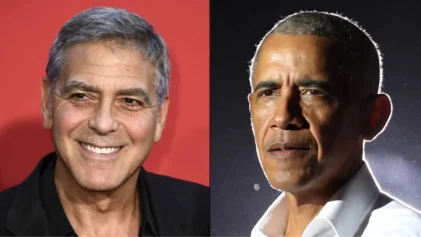President Obama claims a global effort is required to stop the spread of Ebola, but three of the world’s leading experts on the devastating disease are asking why the experimental drug that appears to have miraculously cured two white Americans has not been offered to African patients.
Peter Piot, director of the London School of Hygiene and Tropical Medicine, who discovered Ebola in 1976; David Heymann of the Chatham House Centre on Global Health Security; and Jeremy Farrar of the Wellcome Trust, all said that Africans infected by Ebola should get the same chance as the Americans to be cured.
“African governments should be allowed to make informed decisions about whether or not to use these products – for example, to protect and treat healthcare workers who run especially high risks of infection,” they wrote in a joint statement.
Ebola has been diagnosed in 1,600 people and killed more than 900 in Liberia, Sierra Leone and Guinea. It has thus far killed about 60 percent of those infected.
With the news that two Americans had been sent back home to be treated, media outlets are reporting that doctors and hospitals around the world are now on the lookout for patients who might have Ebola symptoms.
At the end of his groundbreaking summit with more than 50 African leaders, Obama said Ebola can be controlled and contained with the right resources.
“The Ebola virus both currently and in the past is controlled if you have a strong public health infrastructure in place, and countries that have been affected are first to admit that what’s happened here is their public health systems have been overwhelmed. They weren’t able to identify and then isolate cases quickly enough,” he said. “You did not have a strong trust relationship between some of the communities that were affected and health workers. As a consequence it spread more rapidly.”
Obama said the United States is working with European countries and the World Health Organization (WHO) to respond to the crisis, while the U.S. Centers for Disease Control and Prevention has moved Ebola to its highest category of health threat.
“Let’s get all the health workers we need on the ground. Let’s help to bolster the systems that there are in place. Let’s nip as early as possible any additional outbreaks of the disease,” he said.
As for the experimental drug ZMapp, which appeared to cure the American doctor Kent Brantly and missioner Nancy Writebol, the president said it was too early to decide whether it could be distributed in Africa.
Obama said that during the meetings with African leaders, which he called an “extraordinary event,” they decided to establish an African version of the American CDC.
Referring to WHO, the three Ebola experts said it was “the only body with the necessary international authority” to allow such experimental treatments, and that it “must take on this greater leadership role.”
“These dire circumstances call for a more robust international response,” they said.
The experts said if Ebola has been raging though wealthy countries, medical agencies “would begin discussions with companies and labs developing these products and then make rapid decisions about which of them might be appropriate for compassionate use.”
“Experimental treatments shouldn’t be rolled out generally without prior safety testing,” they said in a statement that was issued on London on Tuesday evening. “But in the face of the critical challenge in West Africa, the WHO and Western medical agencies should be helping countries weigh the risks and benefits of limited deployment of the best (drug and vaccine) candidates to those in the greatest need, while continuously monitoring safety and efficacy.”


